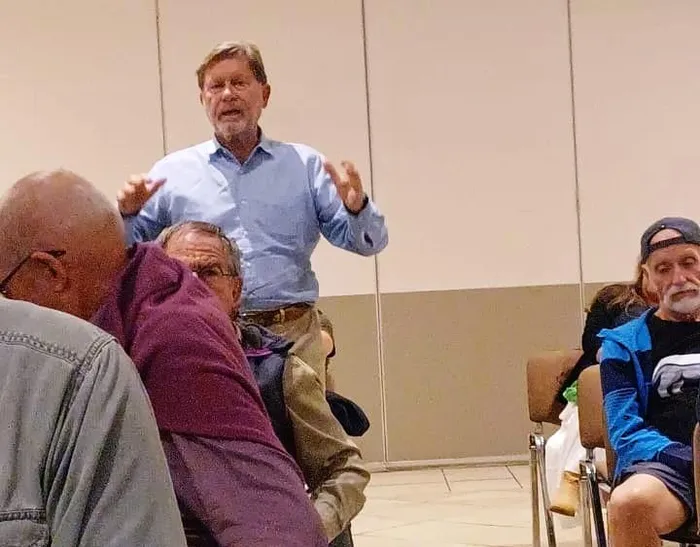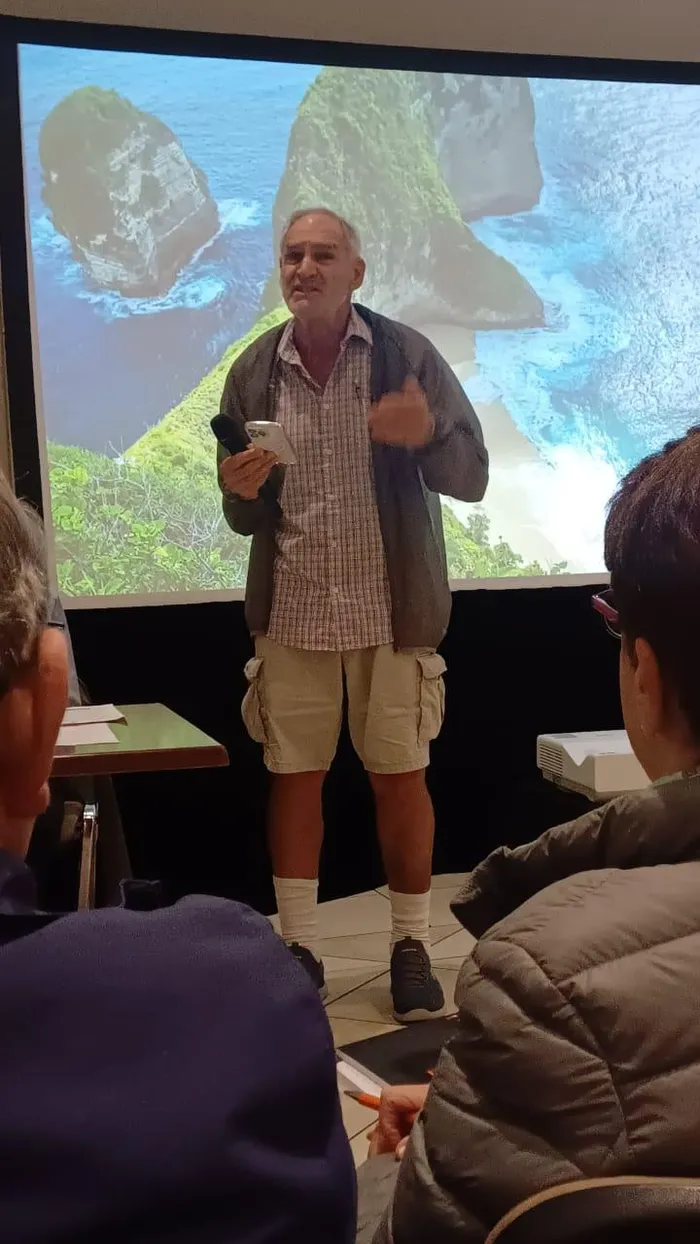Traffic, work of civic discussed at Mouille Point meeting

Former chairperson of MPRA and resident, Marco Van Embden addresses residents at the Mouille Point Ratepayers' Association meeting at the Hellenic Club last Thursday
Image: Tamlynne Thompson
Concerns over traffic congestion and a general lack of awareness about the work of the Mouille Point Ratepayers’ Association (MPRA) dominated the discussion at the organisation's annual general meeting, held at the Hellenic Club last Thursday, May 15.
One resident said traffic in the vicinity of the DHL stadium, especially on event days, and peak traffic in Three Anchor Bay, could back up for hours.
He while they were all for the development of the stadium and hosting of sporting events, traffic was poorly managed when the area was congested. He also raised concerns about speeding in the area.
Ward councillor Nicola Jowell said the area that got congested in Three Anchor Bay had no alternative route to divert traffic to. She added efforts were being made to engage with the correct departments to reach a solution and the City would conduct a survey to see what could be done with traffic management.
She said cameras which weren't working in some of the areas were going to be fixed.
In a subsequent newsletter, the MPRA urged residents to report each time they witness a speeding vehicle. While the vehicle may be long gone by the time it is reported, the more people who complain, the more likely City traffic officials are to conduct speed enforcement.
Residents are urged to call 021 480 7700 when they see a speeding vehicle, and note the date, time and location. If you can get the registration number, colour and make of vehicle, even better.
As part of the keynote address, guest speaker Louise Cooke, vice-chairperson of the fairly new Camps Bay Improvement District, gave the residents and committee a breakdown of what it took to start a city improvement district (CID).
She took the meeting through the process, which included establishing a voluntary steering committee and getting a buy-in vote from 60% of the rateable property owners before applying to the City of Cape Town.
Once the application is successful, the steering committee will then establish a non-profit company, of which residents can apply to be members. She said a public meeting is then held to introduce the CID and elect new members. The supplementary service provided by the CID, which includes public safety, cleaning services and social work with the destitute, are paid for by a percentage of the value of the property which falls within the CID's footprint.
She said starting an improvement district was a lot of hard work going door-to-door to get community buy-in, however, the Camps Bay community got the CID up-and-running in about 10 months.
While the MPRA runs as a voluntary CID, the idea of a formal CID was met with some hesitation as concerns rose that some of the apartment blocks in the area were still not paying the levy.
Former chairperson of MPRA and resident, Marco Van Embden, said Mouille Point was a beautiful area, and everyone should support the MPRA by paying the levy towards the work they do, as those who don't pay reap the benefits of the supplementary services paid for by the organisation.
According to executive committee member Ian Macun, there were at least eight apartment blocks in the area that do not pay the voluntary levies.

Resident Errol Drew speaks about the work being done by the Mouille Point Ratepayers’ Association (MPRA).
Image: Tamlynne Thompson
Resident Errol Drew added that many people are not aware of what MPRA does for the community. "We need to strengthen the image of MPRA for the benefit of the community," he said.
The MPRA's current monthly levy is R157 per apartment, per month. This will increase by 9% from August. The annual membership fee, paid once a year, was R65.40 this year, and due in March. This fee will also increase by 9% in 2026.
For this fee, residents receive:
24/7 security in the form of a tactical patrol vehicle and two guards, as well as a bicycle, a firearm and non-lethal weapons dedicated to the Mouille Point area;
A network of licence-plate recognition (LPR) cameras in the area;
Daily cleansing of the suburb and refilling of the doggy bag dispensers 7 days a week;
Interaction with City of Cape Town officials and councillors; representation of Mouille Point on various councils and city forums; as well as receiving and reporting municipal faults;
The MPRA receives and comments on building plans, by-law amendments;
Engagement with government departments on happenings and events in the area; and
Regular communication with ratepayers, keeping them abreast of Mouille Point issues, happenings and safety concerns.
To receive regular newsletters, email janemeyer@mpra.co.za For more information about the organisation, visit www.mpra.co.za